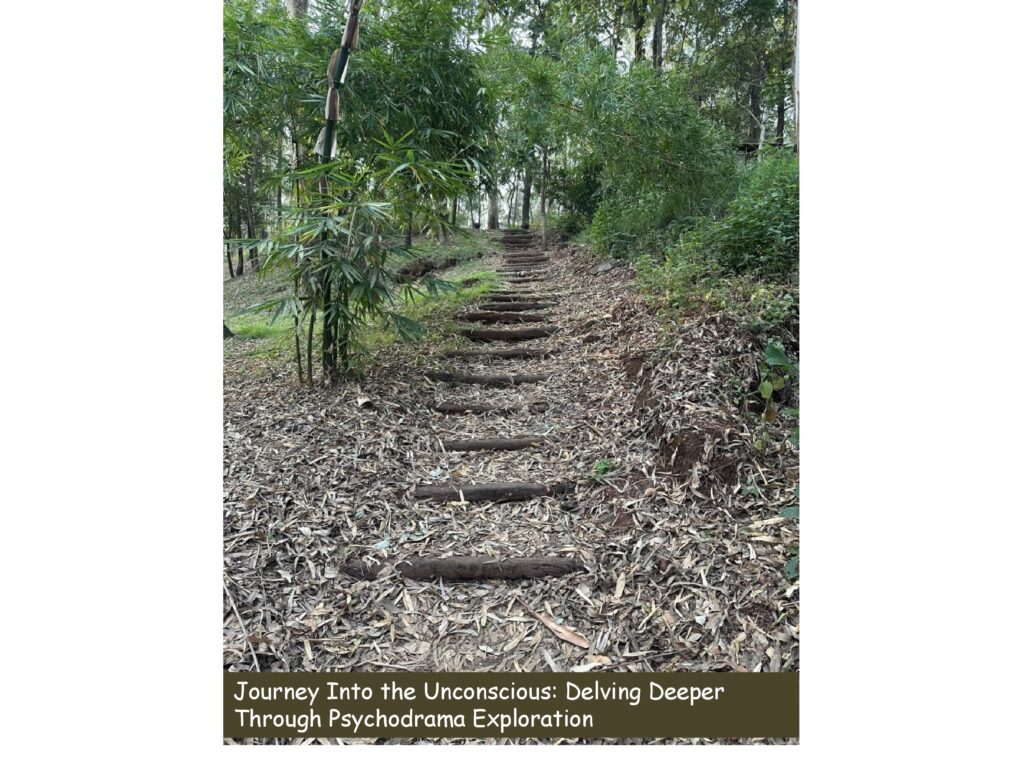Story and Psychodrama

2. 3 March 2024 (weekend workshop in Delhi)
workshop fees: Rs. 6500
This workshop is a collaboration between World storytelling institute and Indian institute of psychodrama. We will work on a, not so ‘popular’ German fairytale: The handless maiden.
Magdalene Jeyarathnam is nearing 30 years as a therapist, she is a TedX speaker, recipient of the Neil Passeriello memorial award for her years of work with the LGBTQI+ community and HIV/ AIDS by the American Society of Group psychotherapy and Psychodrama (ASGPP), she is the chair of Consultative assembly of Affiliate organisations of International Association of group psychotherapy and Group processes(IAGP). She is currently completing her doctoral study.
Dr. Eric Miller, originally from New York City, now resides in Chennai. He studied under professional storyteller Laura Simms in NYC before earning a PhD in Folklore from the University of Pennsylvania. He has taught various subjects including Folklore, Writing, Literature Analysis, Public Speaking, and Storytelling at St. John’s University, Fordham University, and New York University. In Chennai, he has taught at IIT-Madras, the Image College of Animation, Arts, and Technology, and the University of Madras. In 2007, he co-founded and directs the World Storytelling Institute in Chennai, as well as the annual Chennai Storytelling Festival since 2013.
To register : Click here
Call 9884700104 for details or Whatsapp 9884700135 between 10 a.m. and 5 p.m.
Exploring Stories through Psychodrama is a therapeutic technique that can be particularly effective in exploring the unconscious and delving deeper into unresolved issues or emotions. Here are ways in which psychodrama facilitates this process:
- Role Reversal and Projection:
- Psychodrama often involves role-playing, allowing participants to step into the shoes of others or project aspects of themselves onto different roles. This technique can bring unconscious thoughts and emotions to the surface, providing insight into hidden aspects of one’s psyche.
- Symbolic Expression:
- Actions and symbols are powerful tools in psychodrama. Through symbolic expression, individuals can represent complex emotions or experiences that may be difficult to articulate verbally. This allows for a more direct connection with unconscious material and can lead to a deeper understanding of underlying issues.
- Uncovering Repressed Memories:
- Psychodrama can help individuals access repressed memories or emotions that have been buried in the unconscious. The role-playing and dramatic reenactment can serve as a catalyst for recalling and processing experiences that may have been forgotten or suppressed.
- Catharsis and Emotional Release:
- Psychodrama provides a structured and safe space for catharsis, allowing individuals to release pent-up emotions and express deeply held feelings. This emotional release can uncover unconscious material and create openings for exploration and understanding.
- Integration of Opposing Forces:
- Psychodrama often involves the exploration of conflicts and dilemmas. By enacting different roles within a psychodramatic scenario, individuals can gain insights into conflicting aspects of their personality or unresolved inner struggles. This process promotes integration and resolution.
- Metaphor and Storytelling:
- Psychodrama often incorporates metaphor and storytelling, tapping into the symbolic language of the unconscious. Through the creation and exploration of metaphors, individuals can access deeper layers of meaning and gain a more profound understanding of their inner world.
- Group Dynamics and Feedback:
- In a group setting, psychodrama allows for the observation of group dynamics and the reception of feedback from peers. This external perspective can illuminate unconscious patterns and provide additional insights that an individual might not be aware of on their own.
Overall, psychodrama serves as a dynamic and experiential approach to therapy, providing a pathway for individuals to explore the unconscious, confront unresolved issues, and promote personal growth and healing.
A psychodrama workshop is a therapeutic technique that employs role-playing and dramatic enactment to explore and address personal issues, conflicts, and emotional challenges. Developed by Jacob L. Moreno in the early 20th century, psychodrama integrates elements of psychology, drama, and group dynamics to facilitate self-awareness, emotional expression, and interpersonal growth.
Participants in the psychodrama workshop insights:
1. **Increased Self-Awareness**: Through role-playing and reflection, participants gain insights into their thoughts, feelings, and behaviors.
2. **Emotional Expression and Catharsis**: The workshop provides a safe space for participants to express and process their emotions, leading to emotional release and healing.
3. **Improved Communication Skills and Empathy**: Participants enhance their communication abilities and develop empathy by embodying different roles and engaging in group dynamics.
Overall, a psychodrama workshop can be a powerful and transformative experience for individuals seeking greater self-awareness, emotional healing, and interpersonal connection. It offers a unique blend of creative expression, psychological insight, and group support that can facilitate profound personal growth and empowerment.
Takeaway from a psychodrama workshop
Participants in a psychodrama workshop may take away:
1. Enhanced self-awareness: Participants gain insights into their emotions, behaviors, and underlying motivations through role-playing and reflection.
2. Improved communication skills: They develop better interpersonal communication, active listening, and empathy through engaging in dramatic enactments and group interactions.
3. Increased empowerment: Participants leave with a sense of empowerment, self-confidence, and tools for personal growth, enabling them to navigate challenges with resilience and authenticity.
